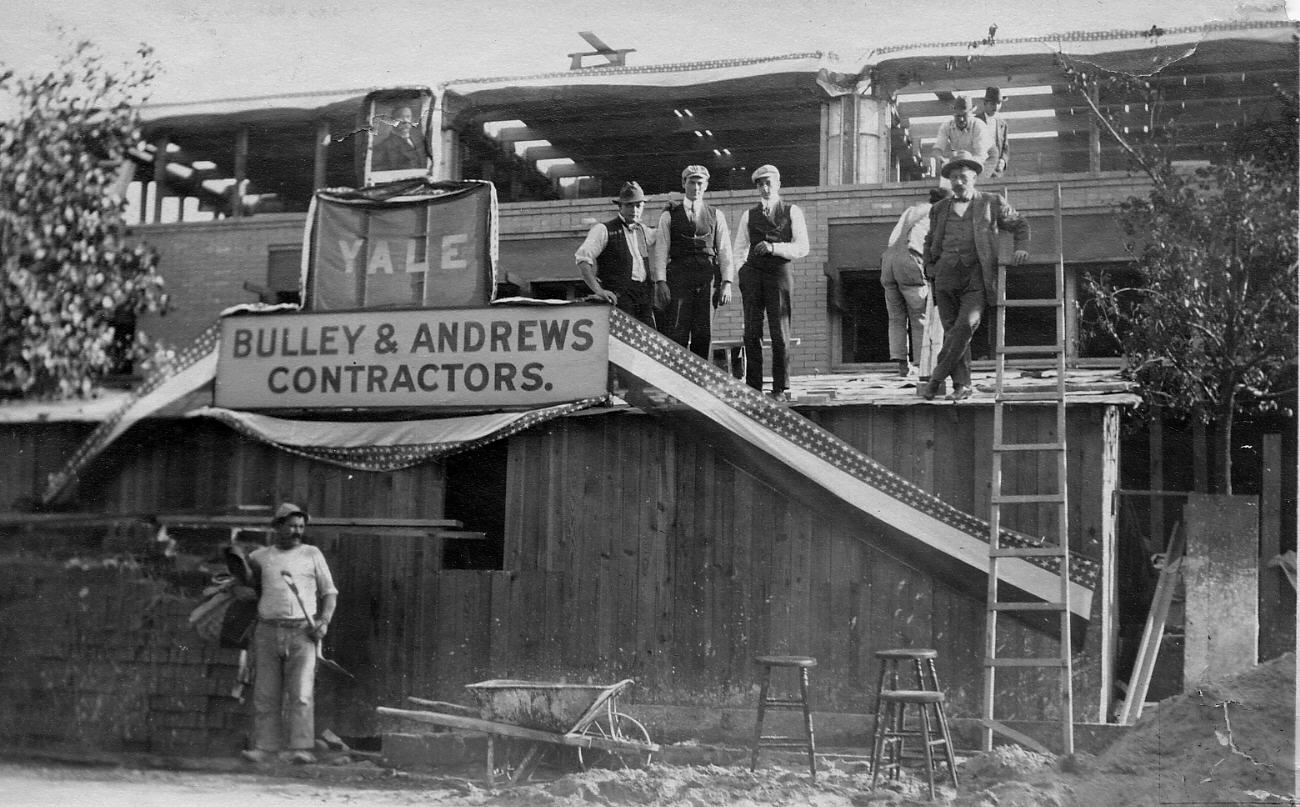In 1891, Frederick Bulley, a 21-year-old English stone mason, partnered with Alfred Andrews, an architect. Four generations and 120 years later, the modest, two man operation has become one of the most successful and well-respected general contracting firms in Chicago.
This year, Bulley & Andrews is proud to celebrate 120 years in business. The family-owned and operated general contractor attributes this significant milestone to the strong foundation built decades ago on honesty, integrity, and service in construction. The firm will celebrate the momentous occasion by hosting an open-house gathering for clients, partners and friends of the firm at the Chicago Club on Thursday, October 13, 2011.
Chairman and CEO, Allan E. Bulley, Jr., and President, Allan E. Bulley, III are the third and fourth generations, respectively, to lead Bulley & Andrews. Yet, family pride and commitment to the firm extends far beyond ownership.
Today, Bulley & Andrews’ annual revenues exceed $210 million and the company employs approximately 70 project management and administrative staff as well as over 200 field personnel. As a self-performing contractor, B&A employs a number of tradesmen whose family histories with the organization span generations and include fathers, grandfathers, brothers and sisters, many of whom have been with the organization for over 25 years.
Significant events in the company’s history include the establishment of Bulley & Andrews Masonry Restoration, LLC, in 2005. Known as BAMR, the group oversees and performs all services necessary to maintain, protect and preserve a building’s exterior. Five years later, in 2010, Bulley & Andrews acquired the assets of Takao Nagai Associates to develop the subsidiary known as Takao Nagai Concrete Restoration. Their concrete repair and waterproofing expertise complements Bulley & Andrews’ extensive restoration experience.
Over the past 120 years, the company has built and restored many of Chicago’s most significant landmarks. Late in 1941, Bulley & Andrews was commissioned by the Atomic Energy Commission to build the laboratory space for the Manhattan Project. Located beneath Stagg Field at The University of Chicago, the project was built in complete secrecy. Decades later, Bulley & Andrews has helped to construct McDonald’s corporate campus in Oak Brook, Ill., restore Frank Lloyd Wright’s famed Robie House and maintain and expand S&C Electric’s campus on the northside. The firm is currently building the world’s largest Ronald McDonald House in downtown Chicago. BD+C
Related Stories
| Aug 11, 2010
City of Anaheim selects HOK Los Angeles and Parsons Brinckerhoff to design the Anaheim Regional Transportation Intermodal Center
The Los Angeles office of HOK, a global architecture design firm, and Parsons Brinckerhoff, a global infrastructure strategic consulting, engineering and program/construction management organization, announced its combined team was selected by the Anaheim City Council and Orange County Transportation Authority (OCTA) to design phase one of the Anaheim Regional Transportation Intermodal Center.
| Aug 11, 2010
GBCI launches credentialing maintenance program for current LEED APs
The Green Building Certification Institute (GBCI) launched a credentialing maintenance program (CMP) for LEED APs and Green Associates, ensuring that LEED professional credentials will remain relevant and meaningful in a rapidly evolving marketplace.
| Aug 11, 2010
Construction employment shrinks in 319 of the nation's 336 largest metro areas in July, continuing months-long slide
Construction workers in communities across the country continued to suffer extreme job losses this July according to a new analysis of metropolitan area employment data from the Bureau of Labor Statistics released today by the Associated General Contractors of America. That analysis found construction employment declined in 319 of the nation’s largest communities while only 11 areas saw increases and six saw no change in construction employment between July 2008 and July 2009.
| Aug 11, 2010
Green consultant guarantees LEED certification or your money back
With cities mandating LEED (Leadership in Energy and Environmental Design) certification for public, and even private, buildings in growing numbers, an Atlanta-based sustainability consulting firm is hoping to ease anxieties over meeting those goals with the industry’s first Green Guaranteed.
| Aug 11, 2010
Architecture Billings Index bounces back after substantial dip
Exhibiting a welcome rebound following a 5-point dip the month prior, the Architecture Billings Index (ABI) was up almost 6 points in July. As a leading economic indicator of construction activity, the ABI reflects the approximate nine to twelve month lag time between architecture billings and construction spending. The American Institute of Architects (AIA) reported the July ABI rating was 43.1, up noticeably from 37.7 the previous month.
| Aug 11, 2010
Rafael Vinoly-designed East Wing opens at Cleveland Museum of Art
Rafael Vinoly Architects has designed the new East Wing at the Cleveland Museum of Art (CMA), Ohio, which opened to the public on June 27, 2009. Its completion marks the opening of the first of three planned wings.
| Aug 11, 2010
National Association of Governors adopts AIA policy of reaching carbon neutrality in buildings by 2030
As part of their comprehensive national Energy Conservation and Improved Energy Efficiency policy, the National Association of Governors (NGA) has adopted the promotion of carbon neutral new and renovated buildings by 2030 as outlined by the American Institute of Architects (AIA).







